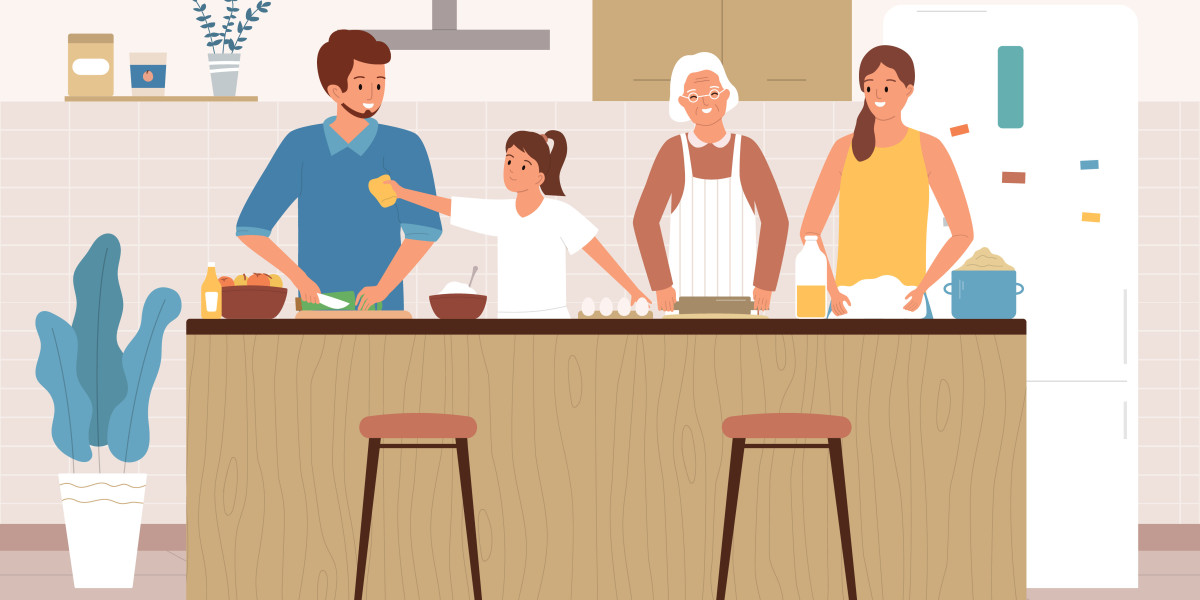We are elite couples who love each other like family. We see the kitchen as the heart of our home. It is where we share stories, laugh, and connect with loved ones over home-cooked food. In busy cities like Mumbai, our work lives keep us running. But we make time for kitchen moments. These build the strong bonds we value in our family. A quiet kitchen means trouble. It can break family ties. America learned this the hard way. India must learn now to avoid the same.
Lesson from American culture
In the 1970s, American families lived close together. Grandparents, parents, and kids shared one home. Each night, they ate meals cooked at home around the table. Food was more than eating. It helped them bond and share values. For us elite couples, this reminds us of our own family meals. They keep our love strong against daily stress.
From the 1980s, things changed in America. Fast food, takeout, and eating out took over. Parents worked long hours to earn money. Kids ate pizza and burgers instead of home food. Grandparents' stories grew quiet. Family ties got weak. We face similar pulls in our busy elite lives. But we choose to cook together. This keeps our family close.
Experts warned long ago. They said giving kitchens to big companies and care to the government would hurt families. People did not listen. The warnings came true. Loneliness grew. As couples who build our family on love, we see this as a big alert. Without kitchen warmth, even strong bonds can fade.
In 1971, 71% of U.S. homes had parents and kids living as a traditional family. Now, it is only 20%. What is left? Elders in nursing homes. Young people alone in small flats. Marriages end. Kids feel lonely. We elite couples want a united family. This drop shows what India cities risk if we let go of home meals. It is not just about food. It is about lost links that make a family special.
Divorce in the U.S. is common. About 50% of first marriages end. 67% of second ones do. 74% of third marriages fail. This links to missing family meals. We nurture our love with home joys. These numbers show how a quiet kitchen speeds up breaks in ties. In our elite world, real partnership grows from daily closeness, not quick fixes.
Not Just Chance: What Kitchens Give
This is no accident. Home food brings more than energy. It has a mom's care, a grandpa's advice, a grandma's tales, and joy of eating together. But now, apps like Swiggy and Zomato bring food that feels empty. Homes turn into plain places, not full of family magic. We fight this by turning on our stoves. Our love stays alive through these acts.
Fast food in America caused big problems. It led to fat bodies, sugar sickness, and heart issues. The health business makes money from this. We elite couples care about health. We see the same in Indian cities. Outside food hurts strength. So we bring back kitchen habits for our family's good. This mess can be stopped. It comes from quiet kitchens, and we say no to it.
We can fix it. In Japan, families cook and eat together. This helps them live long, up to 84 years. In places around the Mediterranean Sea, food is special. Meals build ties across ages. They mix health with close bonds. We learn from this. We fit these ways into our elite Indian life to keep our family love going.
India's Need to Act Now
In Indian big cities, cloud kitchens and fast food grow fast. The market may reach $2.84 billion by 2030. Family meals drop. Loneliness and sickness rise in city rush. As elite couples who guard our family peace, we say stop this wave. Giving away kitchens means giving away our best ties. Right now, turn on your stove. Make a meal. Call your family to eat. Bedrooms make a house. Kitchens make a family.
Husbands and Wives Cooking Together
As elite couples, we husbands and wives work side by side in the kitchen. We chop vegetables, stir pots, and taste the food together. This teamwork helps us support each other every day. It builds better talk between us. We share plans and solve small problems while cooking. This makes our bond stronger and full of trust.
Quality time in the kitchen is key. It lets us laugh, learn new skills, and feel close without distractions. For us, this shared work shows our love as a team. It turns simple meals into moments of joy and care. This habit keeps our marriage happy and our family tight. Without it, ties can weaken over time. Cooking together is like building our future one dish at a time.
Do we want a real home full of love? Or just a place to sleep? We pick the home, every day.



